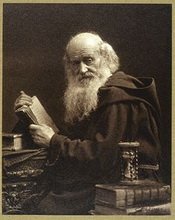(1791-1861)
The French dramatist and librettist Eugène Scribe was born in Paris, the city that remained the centre of his creative activity throughout his entire life. The genre of the so-called pièce bien faite (“well-made play”) was codified based on his ideas and literary devices.
He studied law at the Sorbonne, but abandoned his studies in order to work in theatre. His artistic breakthrough came in 1815, with the piece Une nuit de la garde nationale, which he wrote together with Charles-Gaspard Delestre-Poirson. Scribe would very often continue to work with collaborators afterwards as well: in order to handle the large quantity of work after achieving fame and popularity, he opened a workshop where he created the pieces together with his colleagues, dividing up the tasks.
His initial successes came primarily from writing vaudevilles, for which he would eventually begin to adapt characters from individuals in contemporary society. Later on, he also became popular in other genres. He wrote a great many spoken dramas, nearly 150 for the Théâtre du Gymnase alone. One of his most famous comedies, Le verre d'eau, is still performed to this day.
He was also sought after as a librettist, and wrote the text for more than 50 operas, with many of them premiered at the Opéra de Paris. He frequently collaborated with Giacomo Meyerbeer (Robert le diable, Les Huguenots, Le prophète) and also wrote librettos for Verdi (Les vêpres siciliennes), Auber, Halévy (La Juive), Donizetti, Rossini (Le comte Ory) and others.
The French dramatist and librettist Eugène Scribe was born in Paris, the city that remained the centre of his creative activity throughout his entire life. The genre of the so-called pièce bien faite (“well-made play”) was codified based on his ideas and literary devices.
He studied law at the Sorbonne, but abandoned his studies in order to work in theatre. His artistic breakthrough came in 1815, with the piece Une nuit de la garde nationale, which he wrote together with Charles-Gaspard Delestre-Poirson. Scribe would very often continue to work with collaborators afterwards as well: in order to handle the large quantity of work after achieving fame and popularity, he opened a workshop where he created the pieces together with his colleagues, dividing up the tasks.
His initial successes came primarily from writing vaudevilles, for which he would eventually begin to adapt characters from individuals in contemporary society. Later on, he also became popular in other genres. He wrote a great many spoken dramas, nearly 150 for the Théâtre du Gymnase alone. One of his most famous comedies, Le verre d'eau, is still performed to this day.
He was also sought after as a librettist, and wrote the text for more than 50 operas, with many of them premiered at the Opéra de Paris. He frequently collaborated with Giacomo Meyerbeer (Robert le diable, Les Huguenots, Le prophète) and also wrote librettos for Verdi (Les vêpres siciliennes), Auber, Halévy (La Juive), Donizetti, Rossini (Le comte Ory) and others.
